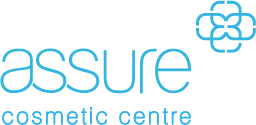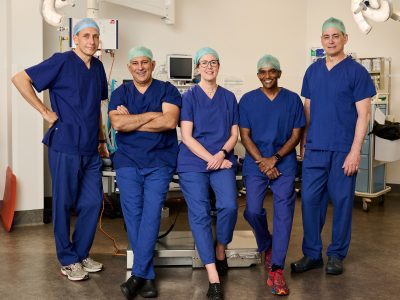Ear correction surgery in Perth or ‘otoplasty’ is a cosmetic procedure aimed at changing the angle and/or shape of prominent ears to set them back closer to the head. The procedure can also aid individuals with ears that have an asymmetrical shape by addressing any unevenness.
Otoplasty in Perth
In Perth, ear surgery is typically recommended for individuals aged six years and above, as this timeframe aligns with the stage when a child is preparing to enter primary school. During this period, children may experience self-consciousness and social withdrawal due to perceived differences from their peers. The child’s ear cartilage is soft and easy to mold, which makes it an appropriate time for the procedure.
While this procedure can also be performed on adults, it is essential to understand that the cartilage in fully formed ears is firmer and does not allow the same degree of molding. As of 1 November 2018, Medicare categorises this procedure solely as aesthetic (cosmetic) for patients aged 18 years and above.
Book a Consultation
To find out if ear surgery in Perth is right for you, the first step is to book a consultation with your Specialist Plastic Surgeon. They will discuss your expectations and any concerns you may have. Pricing and post-operative care will also be discussed.
At Assure Cosmetic Centre, you’re in the care of a highly skilled medical team. Through your journey with us you will feel informed and comfortable and able to make the decision that is best for you.
Frequently Asked Questions
Ear (Otoplasty)
The primary goal to address ear prominence and/or improve ear symmetry, resulting in a better overall facial proportion. It is essential to note that while the procedure strives for improved symmetry, achieving absolute perfection may not always be attainable, as natural facial features often exhibit slight variations between the two sides. Your Specialist Plastic Surgeon at Assure Cosmetic Centre is the best person to determine if your expectations are achievable.
While certain individuals might feel self-conscious about protruding ears and develop coping mechanisms, others might seek further support to maximize the advantages of undergoing this surgical procedure. Engaging in a comprehensive conversation with your surgeon regarding any concerns or anxieties related to yours or your child’s ears, from childhood through adulthood, is crucial.
The operative technique will depend on the patient’s physical features and your Specialist Plastic Surgeon’s methods. The aim is to create a more pronounced fold in the central portion of the ear by remodelling the cartilage. Skin is removed from behind the ear, part of the cartilage is folded or removed, and the ear is allowed to bend naturally towards the side of the head.
In Perth, otoplasty is performed in an accredited hospital, either as a day case or with a short hospital stay. This will depend on the patient’s general health, the extent of the procedure, and your surgeon’s advice.
Otoplasty may be carried out under local anaesthesia (with or without sedation) or general anaesthesia. Usually, children are given a general anaesthetic. The surgery takes about 1 hour.
All plastic, cosmetic and reconstructive surgical procedures come with risks and potential complications. To ensure successful surgery, it is crucial to understand and minimise these risks. Whilst all measures are taken to mitigate risks, some risks are unavoidable.
All information on this page is general in nature – your Specialist Plastic Surgeon will discuss the specific risks and complications pertinent to your individual surgical procedure during your consultation. General risks for surgery are listed here.
Specific risks related to otoplasty surgery include, but are not limited to:
- Asymmetrical ears: In some cases, the ears may not be perfectly symmetrical after surgery. This may require further surgery to correct.
- Re-protrusion of the ears: The ears may protrude again after surgery. This may also require further surgery.
- Nausea and loss of balance: Fluid accumulation within the inner ear can cause nausea and loss of balance. This is usually temporary, but it can be severe in some cases.
- Temporary or permanent loss of sensation: The skin around the surgical site and the surface of the ear may lose sensation temporarily or permanently.
- Ulcer formation: Small areas of skin overlying the cartilage of the ear may die, resulting in the formation of an ulcer. This may take several weeks to heal.
Although no major complications are expected with ear correction surgery, bleeding and bruising may occur. Occasionally, a set back ear may protrude again, necessitating a second procedure. You should follow your surgeon’s advice carefully to reduce the risk of complications. It is unrealistic to expect perfect symmetry between the two sides.
While your surgeon will take great care to minimise their visibility, it’s important to understand that scars are an unavoidable outcome of any surgical procedure. Following an otoplasty, the scars are generally located behind the ears where they are not easily visible. In some cases, the surgeon may make incisions within the inner creases of the ears. If you have a history of keloid or hypertrophic scarring, it’s essential to inform your surgeon about this tendency before the procedure.
Although no major complications are expected with an otoplasty procedure, some bleeding and bruising may occur. Occasionally, a set-back ear may protrude again, necessitating a second procedure. It is important to carefully follow your Specialist Plastic Surgeon’s advice to reduce the risk of complications.
Most patients typically resume their regular school or work routine within a week. However, it is advised to avoid strenuous physical activities for approximately 3 weeks. During the recovery period, patients are given a head bandage, which they should wear for about a week. In certain instances, it might be recommended to wear the bandages at night for an extra 2 weeks.
It’s essential to highlight that each patient’s recovery process requires sufficient time, support, and proper postoperative care. Healing abilities and pain tolerance may vary among individuals, resulting in differences in recovery duration and the ability to engage in various activities.
An initial consultation with your Specialist Plastic Surgeon will cost approximately $250, which is payable in full at the time of booking your consultation. Your consultation will take approximately 30-60 minutes.
Your Specialist Plastic Surgeon will provide an indication of the likely costs, such as your surgeon’s fee, anaesthetist’s fees and hospital and theatre fees. Your surgeon’s fee includes all post-operative care and nurse dressings. Pricing will vary from case to case, but an indicative range of your surgeon’s fee is $3,000 to $4,500 excluding GST. Anaesthetist, hospital and theatre fees are additional.
Medicare and private health insurance rebates are only available for otoplasty surgery in Perth for patients aged 18 years or under. Your surgeon can provide you with more information, but you would then need to talk to your private health insurer to determine if they will provide any cover and confirm what your final out-of-pocket costs will be. For patients over 18 years of age, no Medicare or private health insurance rebates are available.
A good starting point is to book a consultation with one of our experienced Specialist Plastic Surgeons at Assure Cosmetic Centre. You will have the opportunity to discuss your concerns and ask questions. You will be provided with detailed information regarding the treatments or procedures that can help you, the expected outcomes, and the costs involved. Click here to make an appointment.
The Australian Society of Plastic Surgeons (ASPS) website is a helpful and reliable source of information online. Their website is an excellent place to research a range of surgical procedures and non-surgical treatments, and view video animations.
Utilising a search engine can also be beneficial in finding relevant information on these topics.
For patients seeking breast augmentation, the Therapeutic Goods Administration (TGA) breast implant hub also has several documents regarding breast implants, covering various subjects such as Breast Implant Associated-Anaplastic Large Cell Lymphoma (BIA-ALCL), consumer inquiries, and related matters.


